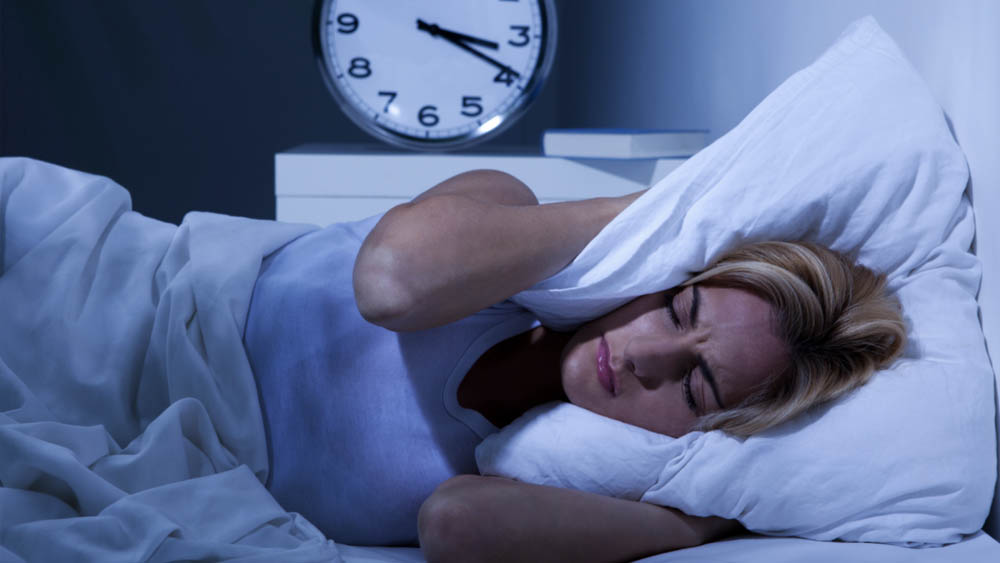Putting Insomnia to Rest with Progesterone
GET DIAGNOSED
Share on facebook
Facebook
Share on twitter
Twitter
Share on linkedin
LinkedIn
Are you tired (literally) of tossing and turning night after sleepless night? Sick of staying wide awake until the crack of dawn until you can finally catch a few half-hearted winks before the day begins? There’s relief.
According to the Center for Disease Control (CDC) and the National Sleep Foundation, most adults between 18 and 60 years of age require between 7 and 9 hours of quality, restorative sleep a night to functional optimally and avoid neurobehavioral disorders, as well as feeling refreshed and energized. The CDC also states that a third of U. S. adults are chronically sleep-deprived, which can negatively impact quality of life and overall health. Chronic, interrupted sleep disorders have been linked to type 2 diabetes, obesity, cardiovascular disease, high blood pressure, kidney disease, and even depression. Skimping on Zzzzz’s has been disconcertingly underrated when it comes to maintaining a healthy lifestyle. Sleep and sleep hygiene should be non-negotiable aspects of staying healthy, just like eating right and working out. However, most menopausal women have trouble either falling asleep or staying asleep – or both. Aside from other wearisome menopausal symptoms, such as hot flashes, night sweats, belly weight gain, mood swings, hair loss, and other undesirables, insomnia and sleep disturbances can be added to the list of womanly midlife woes. Rest easy. Women suffering from insomnia or other sleep disorders can finally wake up to hormone therapy to help with their nocturnal nuisances.
Source Here
What is Progesterone?
Progesterone is the female sex hormone responsible for regulating the menstrual cycle, pregnancy, and embryogenesis of humans and other species. Progesterone helps stimulate the thickening of the uterine lining in preparation for the fertilized egg. Dubbed the “sleepy hormone,” progesterone, at healthy levels, helps induce sleep and ensures a restful night of quality, uninterrupted slumber. However, progesterone production declines with age, especially as a woman nears perimenopause. It’s this low supply of the “sleepy hormone” that has many women miserably staring down their bedroom clocks at 3 am.
Progesterone and the Insomnia Link
When adults are experiencing chronic patterns of insomnia or sleep disturbances, some physicians are quick to prescribe a cocktail of benzodiazepines, which can be found in common, household name drugs, such as Xanax, Valium, and Ativan. Unfortunately, addictive behaviors and cognitive impairment have been linked to the long-term use of benzodiazepines. Often, low progesterone levels are overlooked when treating chronic sleep disorders. Progesterone’s calming and sedating effect on the body can help reverse many sleep disorders menopausal women are plagued with night after night – without the long-term, scary side effects of benzodiazepines.
In a random study, sleepless, postmenopausal women were administered micronized progesterone for 21 days. An EEG (a test that detects electrical brain activity) concluded the progesterone decreased their intermittent time that was spent awake during sleeping hours, while rapid eye movement (REM) increased during the first third of the night. The hormone also confirmed the reduction of sleep disturbance in another categorical study that solely focused on post-menopausal women. Additionally, the duration and quality of sleep was found to be higher in women taking progesterone versus the placebo group.
Conclusion
It’s important to note that patients can experience a wide variety of unfavorable symptoms as a result of hormonal imbalances. It’s highly-recommended to have hormone levels checked regularly as a woman reaches menopause. If you’re experiencing chronic sleep disturbances, insomnia, or awake in the morning feeling sluggish and less than refreshed, consult your doctor to assess your hormone levels and address any hormonal irregularities that may be contributing to your restless nights.
(References: Schussler P, Kluge M, Yassouridis A, et al. Progesterone Reduces Wakefulness in Sleep EEG and has No Effect on Cognition in Healthy Postmenopausal Women. Psychoneuroendocrinology. 2008 Sept.
Caufriez A, Leproult R, L’Hermite-Baleriaux, et al. Progesterone Prevents Sleep Disturbances and Modulates GH, TSH, and Melatonin Secretion in Postmenopausal Women. The Journal of Clinical Endocrinology and Metabolism. 2011 Apr 1. )
If you feel you may benefit from lipedema revision surgery and would like to book a consultation with Dr. Jamie Schwartz to evaluate your current physical situation, as well as your medical and lipedema surgical history, be sure to contact our office to speak with any one of our compassionate, highly-knowledgeable staff members. We look forward to hearing from you and we’re always here to help.

